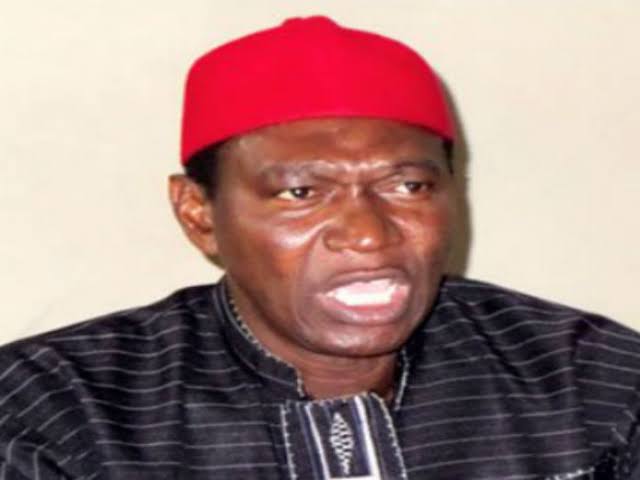Alhaji Yahaya Ndu, the former presidential candidate of the African Renaissance Party, has leveled strong criticisms against the economic policies of President Bola Ahmed Tinubu, asserting that they are reckless and harmful to Nigeria’s economic stability. In an exclusive interview with South-East PUNCH, Ndu described these policies as having plunged many Nigerians into extreme poverty, highlighting a disconnect between the government and the citizens it is meant to serve. He labeled Tinubu’s governance style as a “civilian dictatorship,” expressing concern about the lack of accountability and responsiveness from the leadership. Ndu’s critique also extends to the electoral process, arguing that the combined votes of prominent political figures, including Tinubu, Peter Obi, Atiku Abubakar, and Rabi’u Kwankwaso, amounted to less than 20 percent of Nigeria’s population, illustrating the wide gap between the governed and their leaders.
Ndu emphasized that the argument for giving Tinubu more time to stabilize the government is misleading. He pointed out that Tinubu has been a prominent figure in the political landscape since 2015 when the All Progressives Congress (APC) came to power. More importantly, Ndu stressed that Tinubu was positioned to implement change from the onset, as he had been part of the previous administration under Buhari. Ndu criticized those around the President for suggesting that he inherited a mess; according to him, this is disingenuous since Tinubu has been at the helm of APC affairs for years. He believes that party democracy implicates a shared responsibility among all members for the party’s failures, and therefore, Tinubu cannot evade accountability for the legacy of poor governance that preceded his presidency.
The former presidential candidate harshly criticized the President’s ability to address Nigeria’s issues, citing his lack of insight during the election campaign. Ndu noted that Tinubu consistently sidestepped questions about policies and governance plans, often relying on aides to respond on his behalf. He expressed disappointment in the electorate for allowing themselves to be misled by a political system that prioritizes representation over genuine participation. He advocated for a shift toward a mass participatory approach where citizens are actively involved in formulating solutions to the nation’s pressing problems. This, he argues, is essential for genuine democratic practice and effective governance.
Further elaborating on the need for community input, Ndu called for collaboration among professionals in various sectors, such as technology and healthcare, to develop a cohesive strategy for national progress. He argued that leveraging the skills and insights of engineers and healthcare professionals, both domestically and in the diaspora, is vital for innovations that could elevate Nigeria’s global standing. Ndu underscored that democracy should not only be about voting but also about engaging citizens to tap into the collective intelligence of the populace. This participatory approach, he believes, is the key to overcoming Nigeria’s multifaceted challenges.
On the pressing issue of fuel subsidies, Ndu argued that the removal of subsidies on Premium Motor Spirit (PMS) was the worst decision made by Tinubu’s administration. He criticized the timing of the subsidy removal, pointing out that it was enacted even before the President had established a cabinet. Ndu suggested that a more prudent approach would have involved engaging with unofficial refiners in the country rather than seeking to dismantle them. He proposed a system where these entities could be regulated and encouraged to operate legally while ensuring that citizens benefit from affordable fuel prices.
Finally, Ndu drew comparisons with countries like Libya, noting that despite Nigeria’s significant oil reserves, citizens are faced with exorbitant fuel prices that far exceed what is charged in other African nations. He concluded by emphasizing the need for a cohesive and informed strategy in governance that aligns with the realities faced by ordinary Nigerians. Ndu’s critique encapsulates a broader call for accountability, inclusivity, and genuine democratic engagement as critical components for Nigeria’s socio-economic advancement.


